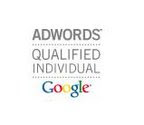I finally got a profile into
Facebook. And we established unformal closed group for
Navia CMS users. Every friend I have in Facebook can see wether I'm online and my status, if given. We even have these Skype-buttons at
Naviatech's site, so that customers and partners could see if we're "away" having lunch or "off-line" in a meeting. Purpose of this is to avoid unneccessary phone calls, but I have to admit that it may increase the amount of e-mails received. I haven't measure it though. : )
Professional web analysts want to measure everything, of course. Eric Peterson have this awesome
formula for
visitor engagement metric. And for example, if I sign in to Amazon.com, it remembers what I have bought and recommends other products according to my own or my colleagues shopping cart behaviour. This is ok, we want people to convert and offer them better service.
There is atleast one advertising agency in Helsinki promoting their newsletter tool which reports recipients who opened the message. Sales team can have that information immediately to work with. One consultant was asking us how to track down and follow visits after login in personal level? Yes, we could do that and we have the technology, but...for what? I have talked about privacy with several web analytics professionals and lately also with an attourney in legal firm
Castrén & Snellman. Unfortunately there is no specific privacy law in Finland at the moment. But, if you follow up visits in personal level or who opened your newsletter and when, you should have asked a permission from people for that.
My recommandation is that you can get the data and use it anonymously in more general level. You have to measure effectiveness of the newsletters and how many people clicks links in the message and more how many people convert to your ultimate goal. But if you don't have recipient's or visitor's permission, don't annoy people to call them and try to sell something they might not be interested in the first place. Instead, try to plan and execute your campaigns so that you could get maximum profit out of if, whithout pissing your potential customers off. There's also a possibility to get a legal action too. I think that as a marketers, we have to be smart and polite, so let the people decide how close they want us to get...
Please tell me your opinion and send comments on this one.
Season Greetings for Everyone!

 If this is true, we want more visitors to website to get more sales, right? And we would like to measure couple of things, so we can prove it by numbers. The company is doing different kind of marketing activities constantly, so here's suggestions what we could measure:
If this is true, we want more visitors to website to get more sales, right? And we would like to measure couple of things, so we can prove it by numbers. The company is doing different kind of marketing activities constantly, so here's suggestions what we could measure:






